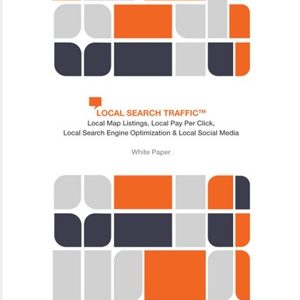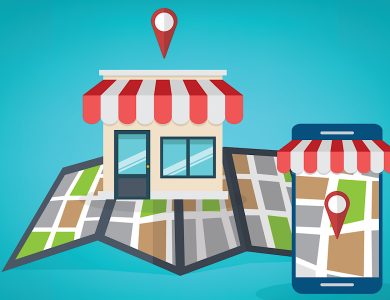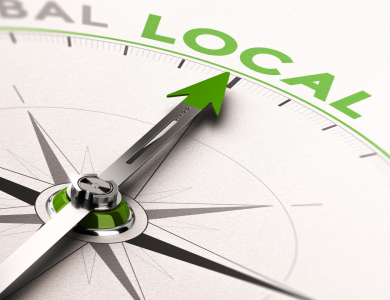
Local businesses aiming to enhance their online visibility often face the challenge of proving their "localness" and relevance to search engines.
In my previous article on leveraging local partnerships and collaborations to build authority and visibility, we emphasized the significance of community engagement to establish this localness.
Two main strategies for engaging with local customers are through events or communication during relevant occasions.
Both methods offer opportunities to create informational, educational, or promotional content where local businesses can showcase their expertise, experience, authoritativeness, and trustworthiness, also known as E-E-A-T, which Google considers crucial in its Search Quality Rater Guidelines and search rankings.
Participating in local events and seasonal communication also addresses distance and prominence factors, believed to be critical ranking signals for local businesses.
Moreover, Google’s rankings are refined by locality and personalization, aiming to deliver the right content to the right people on the right device for every search.
Improved visibility of engaging content in search rankings can lead to more targeted traffic and potential customers.
Why Seasons Matter
Seasons significantly influence consumer behavior. They affect shopping habits, the products people need, and the services they seek.
For example, an ice cream shop may see a sales surge in summer, a landscaping business could witness increased inquiries in spring or late summer, and tax preparation services will have an influx of clients as tax season nears.
Limited-time offers during specific seasons create a sense of urgency and exclusivity.
Where To Start
Begin by identifying events and occasions relevant to your business and customer base. Consider events or initiatives that would resonate with your local audience and look for authentic ways to connect with them.
These events can be hosted by your business, a local partner, or sponsored through a local organization.
Potential events include:
- New product launches or special promotions.
- Educational seminars or webinars.
- Business milestones such as anniversaries or new locations.
- Client appreciation events.
- Holiday and seasonal events or promotions like Black Friday or Christmas.
- Local charity events.
- Local sports or club events.
Once you’ve decided on the types of events, create an event plan detailing:
- Event goals (e.g., number of attendees, new leads).
- Event organizers.
- Date, time, and schedule.
- Location/venue.
- Speaker list, if applicable.
- Budget.
- Event promotions (where, when, and how).
- Content requirements.
Creating Event-Based Content
Hosting or participating in events provides ample opportunities to generate content. Tailor your content to showcase your local E-E-A-T, enhance event and brand visibility, and maximize attendance.
Event Web Page Content
If you hold regular events or want to highlight your community participation, create a dedicated Events page or add an Events section to your About Us page. This page should contain all event details and link to relevant service pages or complementary content.
If partnering with another business, include relevant links for additional details regarding the event or your business partner.
An FAQ section should address any common questions your customers may have about the events or organizations involved.
Informative Blog Posts And Articles
Create detailed blog posts or articles with relevant images, audio, or video, providing prospective attendees with helpful background or educational information. This content should link back to the event page and related product or service pages.
For example, a landscaping company hosting a Spring event might publish a blog series on prepping gardens and lawns for the season.
Similarly, a tax accountant may collaborate with a local personal investment advisor to co-publish an article on minimizing tax exposure and run a joint seminar or webinar.
Google prioritizes relevant, useful, high-quality content. Events and seasons are natural vehicles for creating such content to benefit your target audience.
Video Content
Video is a popular and often preferred method of web communication on social channels like YouTube, Instagram, Facebook, and TikTok. Sharing educational or promotional videos aligned with an upcoming event or seasonal shift can help a local business stand out.
YouTube videos, in particular, should be optimized to appear in YouTube and Google search results. These videos should also be embedded in the event web pages and blog posts supporting them.
Social Media Content
Assuming a local business has built a social media following, sharing web, blog, or video content via these channels extends the offline community. Social posts should include clear calls to action and links to event details.
Use unique, relevant hashtags when creating event-specific social media posts, such as #welcomebackspring or #springgardenprep. During events, encourage participants to share their experiences using these hashtags, which can be re-shared on your social channels.
Back To Partnering
Partnering with local influencers, like-minded businesses, or organizations to co-host events or run joint promotions can share event/content responsibilities, expand your reach, and introduce your brand to new audiences.
Identify and reach out to organizations or individuals with a similar target audience, proposing mutually beneficial collaborations with shared goals and expected outcomes.
Measure And Analyze Everything
The success of any digital marketing strategy relies on analytics. Track key metrics like organic search visibility, paid ad results, social engagement, and website visits to assess which aspects of events worked and which didn’t, allowing for necessary adjustments.
Request feedback from participants, sending post-event surveys to attendees to gather opinions on what they liked or didn’t like, creating more value-added events and content.
Get Eventing
By integrating local events and seasonal campaigns into their marketing strategy, local businesses can strengthen community connections, enhancing prominence and establishing the E-E-A-T Google values to drive sustainable growth.
Google’s aim to deliver personalized, relevant local results within a defined area rewards the most engaged and active businesses. Consistency and adaptability, supported by data, are key to long-term success.
More resources:
- Small Business SEO Checklist: 11 Ways To Improve Rankings
- Small Business Marketing 101: Getting Started
- A Guide to Local SEO.
Featured Image: kenary820/Shutterstock



